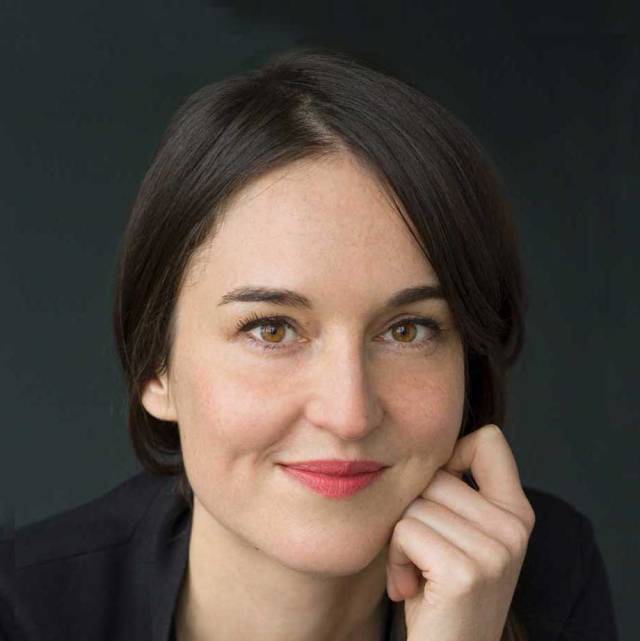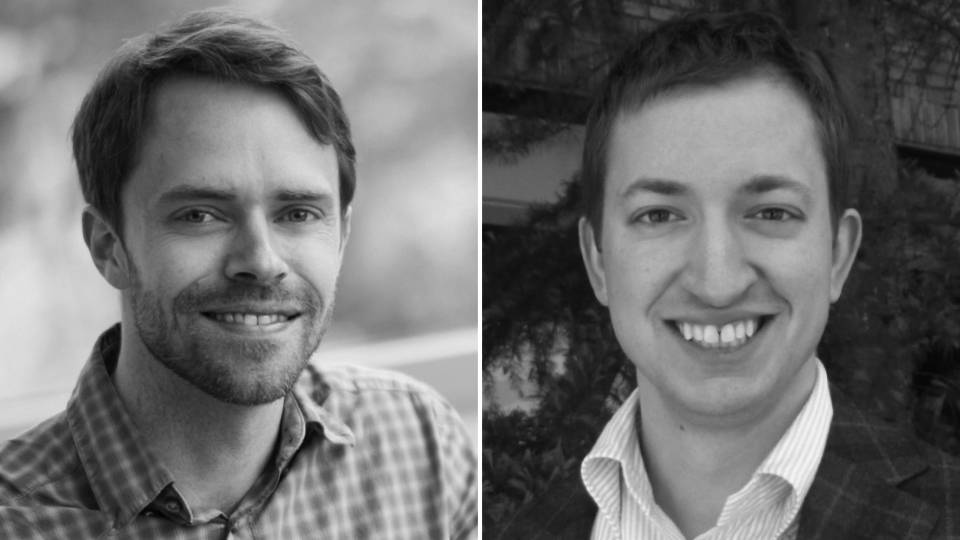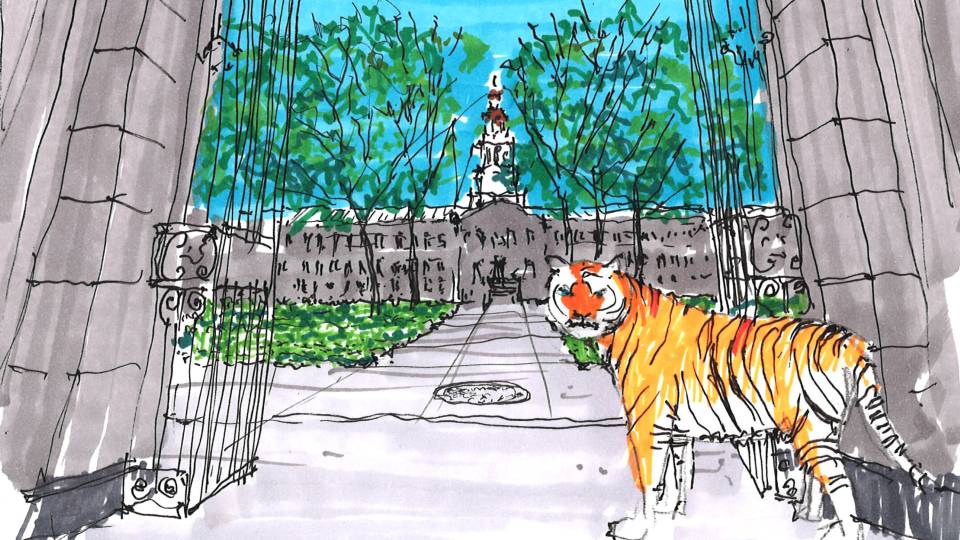Four Princeton University faculty members have been named recipients of the Graduate Mentoring Awards by the McGraw Center for Teaching and Learning and will be honored during the Graduate School’s Hooding ceremony at 4:30 p.m. Monday, May 23.
The award winners are Anna Arabindan-Kesson, assistant professor of art and archaeology and African American studies; Mark Brynildsen, associate professor of chemical and biological engineering; Curtis Callan, the James S. McDonnell Distinguished University Professor of Physics; and Natasha Wheatley, assistant professor of history.
The mentoring award recognizes Princeton faculty members who nurture the intellectual, professional and personal growth of their graduate students. Graduate students nominate faculty members for the award, and they serve on the committee that selects the winners together with faculty members, senior staff from the McGraw Center and the deputy dean of the Graduate School. The award honors faculty in each academic division (engineering, humanities, natural sciences and social sciences) and includes a $1,000 prize and a commemorative gift.

Anna Arabindan-Kesson
Anna Arabindan-Kesson
Anna Arabindan-Kesson, a faculty member since 2015, studies Black Diaspora and British art, with an emphasis on histories of race, empire and medicine.
“Her enthusiasm for art history is infectious,” one student said. “Anna has empowered me to articulate my own ideas in relation to the field and has encouraged me to be bolder about my research.”
Another student commented that when he arrived on campus, Arabindan-Kesson was on leave in a time zone 12 hours ahead of Princeton, “yet she still managed to find time to connect with me and ensure I was taking the most helpful courses and tackling projects from productive angles.” He also valued her feedback on his work, citing one essay for which she reviewed numerous drafts as an example of the way her mentorship “enabled me to develop this nugget of an idea into a fully fledged article that is rigorous but also broadly accessible.”
Students were especially appreciative of how supportive Arabindan-Kesson was of them, both personally and professionally, especially during the trying days of the pandemic. “Her passion for education and mentorship is reflected in the community of care that she created in her classroom,” one student commented.
Mark Brynildsen

Mark Brynildsen
A faculty member since 2010, Mark Brynildsen studies biomolecular engineering as well as cellular and tissue engineering.
Students were grateful for the weekly meetings he holds with all advisees. One student remarked that the meetings provided not only direct feedback from Brynildsen, but also a valuable opportunity to learn from fellow students. “I am certain that I have grown in confidence as a researcher more quickly than I otherwise would have been able,” the student said.
“Mark stands out as a mentor because he truly trusts me as a researcher,” another student said. “Under Mark’s guidance as my adviser, I have enormously improved my ability to problem-solve, critically assess data and draw conclusions from observations.”
One student observed that graduate school “is filled with highs and lows, and many points when you feel like you are spinning your wheels.” After each meeting with Professor Brynildsen, “I’ve always left with a new sense of invigoration and a path forward.”

Curtis Callan
Curtis Callan
Curtis Callan joined the faculty in 1972. He is a theoretical physicist who has worked on developing the quantum theory of fundamental constituents of matter and the theory of “living matter.”
Students say Callan is a highly collaborative researcher who made them feel comfortable sharing their ideas. “He nurtured growth, self-reflection and confidence in his students, while rigorously instilling the practical skills we needed to succeed in the research community,” one student remarked.
Callan mentored students by demonstrating how to do high-quality work, connecting them to others who could help their development and taking an active interest in their careers beyond their time at Princeton, according to students.
“To say Curt was available as an adviser would be a gross understatement,” another student said. “Not only was his door always open for me to wander through if I had a question, but he invited me to share his office in Icahn and work alongside him.” Callan was “unfailingly respectful, supportive and patient,” he added.

Natasha Wheatley
Natasha Wheatley
Natasha Wheatley, who has been at Princeton since 2017, is an historian of modern European and international history.
Wheatley’s commitment to building community among the students earned her praise, as did the detailed comments Wheatley provided on their work. “Her substantive feedback for drafts I have submitted have reached half the length of the actual paper,” one student said. “I can clearly see how Professor Wheatley’s advising has made me a stronger writer and more creative thinker.”
Students were also thankful for her collegiality. “Professor Wheatley treated me as a colleague while also mentoring me in the practice of undergraduate teaching,” one student said. “I had a once-in-a-lifetime role model and mentor.”
“Professor Wheatley has a way of getting to the analytic and thematic heart of any project, even if it lies way outside her area of expertise,” another student observed. “This speaks to her intellectual generosity and curiosity, arguably the two most important qualities of any academic mentor.”






















